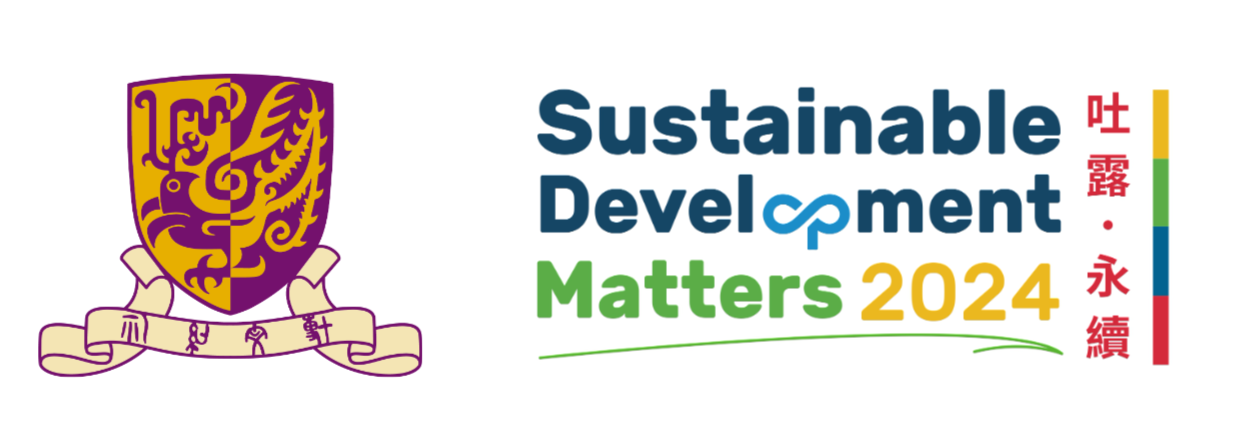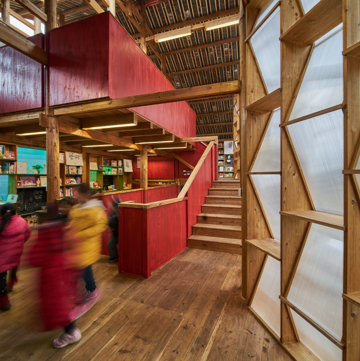CUHK’s Take on USR
Prof. Rocky Tuan on shouldering more for the benefit of mankind
Contributed by
Information Services Office
Interviewee
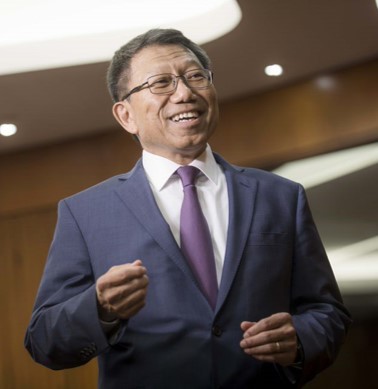
Professor Rocky Tuan
Vice-Chancellor and President, The Chinese University of Hong Kong
Share this story
University social responsibility (USR) is a relatively new concept. Could you tell us more about it?
USR is the promotion by tertiary institutions of a set of principles and values that will help us overcome the educational and social challenges we face. Universities have a responsibility to bring about sustainable development which means we meet the needs of the present without compromising the ability of future generations to satisfy their own needs. The core functions of CUHK are teaching, research and engagement. To embrace USR, we need to go beyond these core functions, and be more responsive to pressing social issues and sustainability challenges.
We at CUHK take a holistic approach to USR. We seek to ensure that sustainability is not merely an optional add-on, but rather a philosophy firmly embedded in all our values and aspirations. We have set ourselves sustainable development targets in several areas, ranging from health to education, from inclusion to partnerships, and from climate action to responsible processes. These targets ensure that we do more than just talking about how progressive we are. At CUHK, we are committed to translating social responsibility into action. And it is action, not words, that will make a real difference.
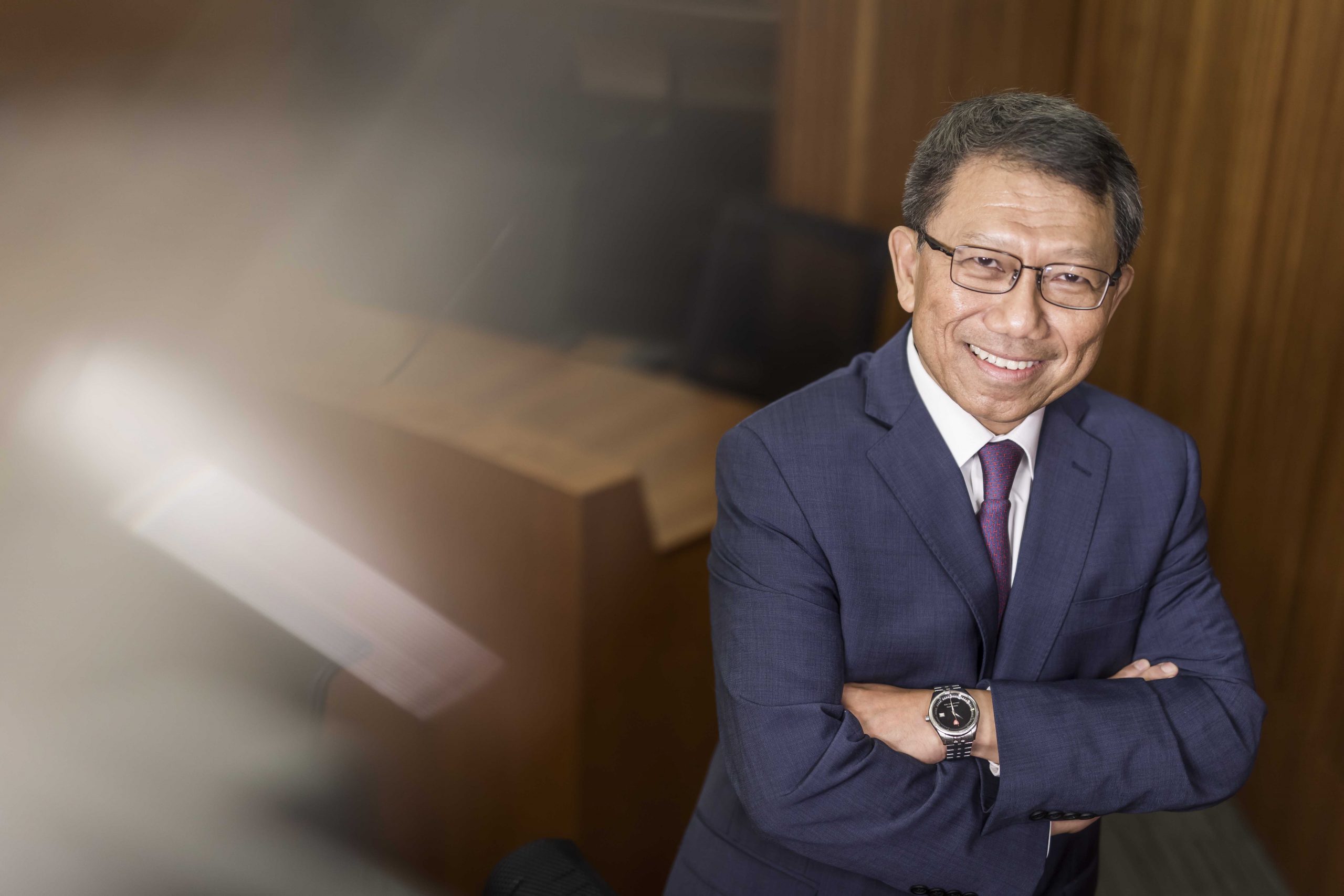
Vice-Chancellor and President of CUHK Professor Rocky S Tuan
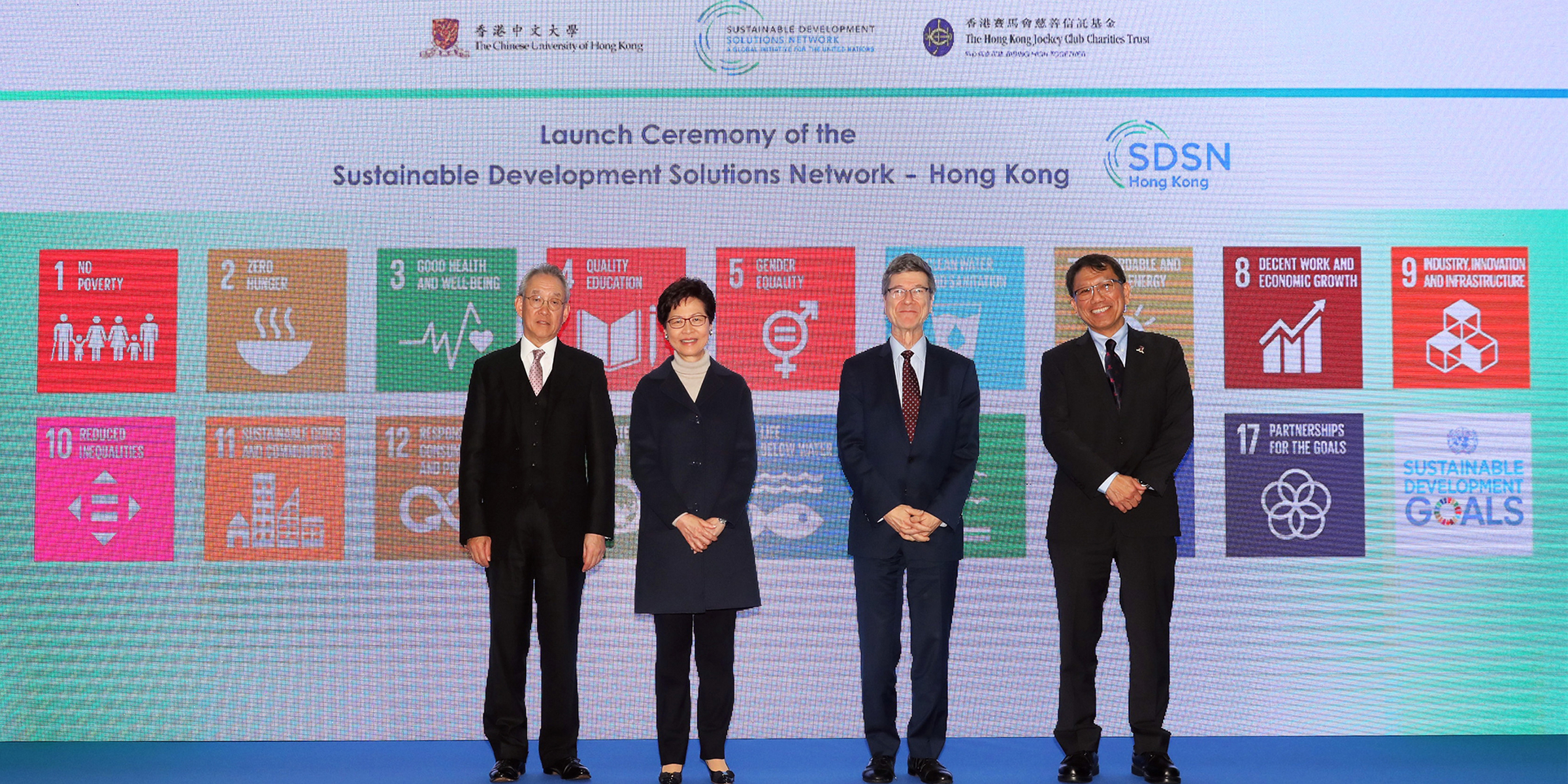
Officiating at the launch ceremony of the Sustainable Development Solutions Network Hong Kong are The Chief Executive of the Hong Kong Special Administrative Region Mrs Carrie Lam Cheng Yuet-ngor (2nd left); Director of the UN SDSN Professor Jeffrey Sachs (2nd right); Deputy Chairman of The Hong Kong Jockey Club Mr Anthony W K Chow (1st left), and Vice-Chancellor and President of CUHK Professor Rocky S Tuan (1st right)
Why is sustainable development so important to CUHK?
CUHK is a socially responsible university. We uphold the principle of sustainable development, and recognize that we have local, national and global social responsibilities. Much of our work, naturally, focuses on the specific challenges faced by our own local community, and we have introduced several important initiatives. The Green Office Programme is a good example. We have been running it for several years, and are continually reviewing and adjusting it in order to maximize the efficiency and impact of our USR efforts. We have also launched several other USR initiatives, notably the Sustainable Development Goals Action Fund, the Diversity and Inclusion Policy and the Outsourcing Policy. These initiatives actively engage our students and staff, and help promote the cause of sustainable development on campus.
How is CUHK responding to big environmental issues, such as climate change?
Climate change is a growing global threat. We have known about it for several decades, but so far not enough has been done to slow the trend of global warming, let alone reverse it. However, we have recently seen signs of a greater willingness on the part of the international community to fight global warming. China, for example, has pledged to become carbon neutral by 2060, and we hope to achieve the same goal in Hong Kong by 2050. As a socially responsible university, CUHK must play its own part in this wider endeavour. We should commit to achieving carbon neutrality, i.e., a net zero carbon footprint. This commitment is in line with the Sustainable Development Goals adopted by the United Nations (UN) in 2015, and with the HKSAR Government’s long-term decarbonization strategy. It also sets an excellent example locally, and will help mobilize support throughout Hong Kong for the combat against global warming.
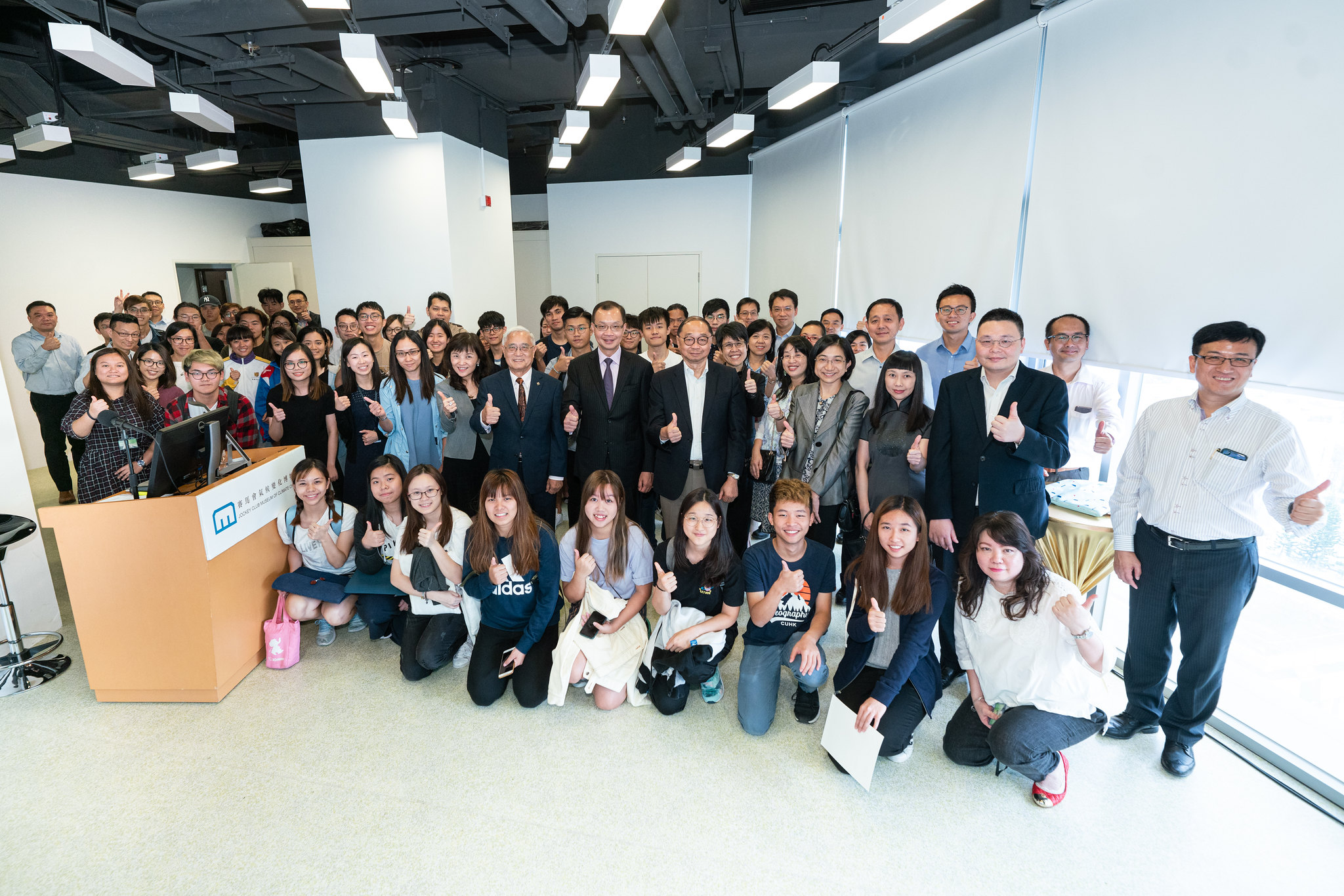
Launch Ceremony of ‘Green Office Programme 2.0’
How climate actions can be fostered on campus in order to assume USR in this aspect?
Universities are leaders in knowledge creation. We at CUHK are therefore particularly well placed to use our expertise to good effect in the battle against global warming. We are especially conscious of the importance of our role in educating young people, as today’s students will be the leaders of tomorrow. We therefore seek to nurture young people who will eventually lead the fight against climate change. Our student ambassadors at the Jockey Club Museum of Climate Change offer a shining example of how we go about shaping future leaders in climate action.
We believe in fostering a culture of shared responsibility for climate action, and we try to encourage as many people as possible to get involved—not only staff and students of CUHK, but also visitors and the wider general public. Our Museum of Climate Change plays an important part in this process. Its community outreach projects allow our students to take part in climate action activities, learn from their experiences, and develop their leadership skills. At the same time, the wider community benefits from our efforts, and is also encouraged to adopt a more climate-friendly lifestyle.
What other areas should CUHK focus its USR on?
Smart campus would be one of the focal points. We hear the term ‘smart city’ quite a lot these days. The government wants to turn Hong Kong into a smart city, where technology links up lots of different processes and services and makes life more convenient for everyone. It is a seductive vision, but takes time to realize. It also requires the support and involvement of the whole community. CUHK is an important stakeholder in this process, and our own vision is therefore to make CUHK a ‘smart campus’.
We set up a task force in 2019 to provide a road map for this process. In line with the task force’s thinking, we have recently unveiled our ‘Smart CUHK Challenge’. This initiative provides a framework within which students and staff can rise to this challenge and put forward innovative proposals for turning the vision of a smart campus into a reality. Our smart campus will serve as a living laboratory. Researchers will be able to transfer the knowledge they create, and students will have the opportunity to learn and explore new ideas. We will also continue to test and deploy innovative technologies on campus. We are confident that the solutions we develop here can also be applied in the wider community.
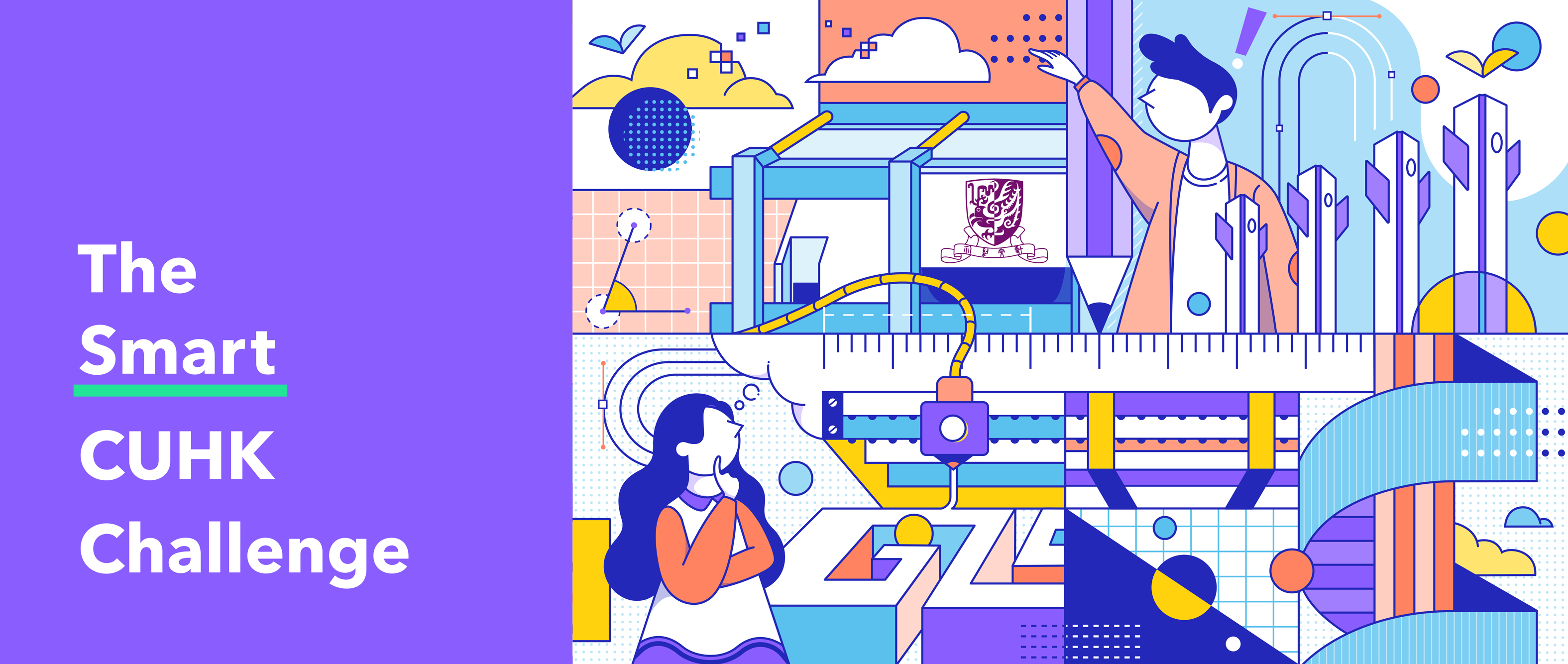
The Smart CUHK Challenge is the first smart campus initiative at CUHK that aims to provide an experimentation platform and resources to support students and staff to actively address challenging questions and propose innovative solutions for the development of a smart CUHK campus.
How could we make the best of global partnerships to implement USR?
Many of the global challenges we face today spring from decades of reckless behaviours. Until recently, it seemed as though we were determined to exhaust the finite resources of our planet, regardless of the consequences for the future. Fortunately, attitudes are changing. We are gradually realizing that we cannot keep plundering the earth’s resources with impunity. In 2015, the UN adopted a set of 17 Sustainable Development Goals (SDGs). These goals provide a blueprint for a better and more sustainable world for all, but global cooperation is needed if they are to be achieved. Specifically, SDG 17 enjoins us to forge strong global partnerships to help translate these goals into realities. Here at CUHK, we are part of this process.
In 2018, in partnership with the Hong Kong Jockey Club Charities Trust, we assumed a leading role in the operations of the local chapter of the UN’s Sustainable Development Solutions Network—SDSN Hong Kong for short. This network will harness the expertise of businesses, government departments, universities and community organizations to tackle pressing environmental, social and economic issues. This partnership will enable us to do several things. Firstly, we intend to promote the UN’s 17 SDGs far more widely in Hong Kong. Secondly, we intend to place a much greater focus on sustainable development education, through partnerships with SDG Academy (SDSN’s education arm). Finally, we intend to make CUHK’s transformative solutions more widely available both inside and outside Hong Kong.
Share this story
UP NEXT
Gifts of Literacy
James Chong and Peter Ferretto connect disadvantaged children with reading habit
Primary school students in Hong Kong score low in motivation, interest and confidence to read and learn, according to the latest Progress in International Reading And Literacy Study survey…
